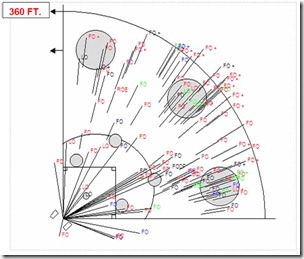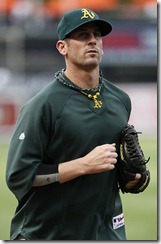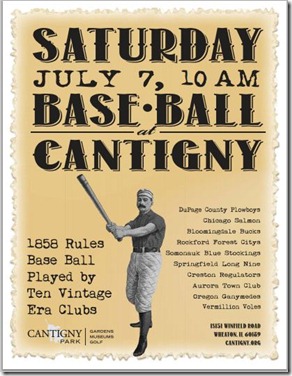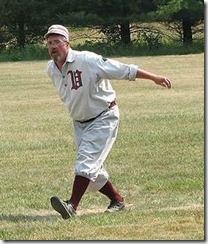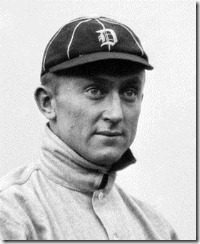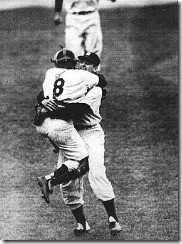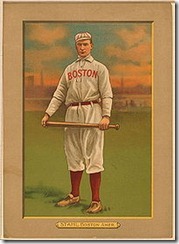boner
noun: A bonehead play or “boner” is a mental mistake that changes the course of a game dramatically. A play where there is an obvious loss of focus and a bad choice was made when the alternative was clear.
(definition from Wikipedia’s Glossary of Baseball)
Variances: bonehead play, muff, boot, error
Git yer mind out of the gutter, baseball fans. We’re talking about sports, now.
The interesting thing about the term ‘boner’ is its legacy. Baseball words like ‘can of corn’ and ‘jaking it’ were coined years ago and somehow have hung on even though most people have forgotten their origin. I’m sure the term ‘boner’ presents a dilemma, though for mainstream media. In efforts to not offend because of its sexual nature, I think the term has decreased in use among venues that attempt to reach a wide audience. You do still see it used now and again though.
Famous Bonehead Plays
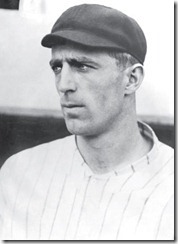 Historically speaking, the most famous use of the term is of course, ‘Merkle’s Boner’. Fred Merkle (left) was a young 19 year old first baseman playing for the New York Giants in 1908 when his base running mistake nullified the winning run of a late-season game with the Cubs at the Polo Grounds. The game was eventually ruled as a tie and the game was replayed and the Cubs won 4-2, ensuring the NL championship.
Historically speaking, the most famous use of the term is of course, ‘Merkle’s Boner’. Fred Merkle (left) was a young 19 year old first baseman playing for the New York Giants in 1908 when his base running mistake nullified the winning run of a late-season game with the Cubs at the Polo Grounds. The game was eventually ruled as a tie and the game was replayed and the Cubs won 4-2, ensuring the NL championship.
Baseball Almanac has the boxscore of that game. Probably one of the best written accounts of the event can be found over at the Baseball Reference Bullpen. B-R Bullpen notes the prominence of so many baseball stars of the time that were involved in that play. Christy Mathewson, Johnny Evers, Frank Chance, Iron Joe McGinnity and John McGraw all played a role in this mini-drama.
Fred Merkle’s failure to touch second base in that game and therefore granting him notoriety for decades draws some interesting analogies with Jake Stahl. Both were star first basemen in the deadball era both defensively and with the bat. Merkle played 14 years in the National League and two more in American League. He was especially good with the glove. Yet both have the distinction of having their names associated with a negative event or trait (the term ‘jaking it’ is attributed to Stahl’s refusal to play because of an injury). Perhaps unfairly so. Merkle was only 19 at the time and had a whole career ahead of him to redeem himself. In contrast, Stahl was already an established star when the term ‘jaking it’ was allegedly cast on him.
Other Famous Bonehead Plays
Other uses
Apparently a ‘sports boner’ has a another definition that I was not familiar before. According to Urban Dictionary: Sports Boner: ‘Excitement do to a great physical sports related feat’. I got a major sports boner when Kirby Puckett made that leaping catch in the 1987 World Series”
Must be what the kids are saying these days.
The term ‘boner’ (meaning blunder) is used in general conservation not just in sports lexicon. However, according to Urban Dictionary, it also has roots in the theater especially as in ‘pull a boner’.
The expression “to pull a boner” comes from the old American minstrel shows. There was a man in these shows who was called Mr. Bones because he carried two small sticks of bone that he used as an instrument. He was asked questions by one of the other men in the show, just to get stupid but funny answers. This became known as “pulling boners.” But in time, the expression, “to pull a boner,” meant something more than getting an answer to make you laugh. It meant a bad blunder a mistake that was costly. And a man who pulled such boners was often described as a “bonehead.”
Now, after researching for this article, you’ll have to excuse me. I’m going to have to clear my search history. Yikes.


